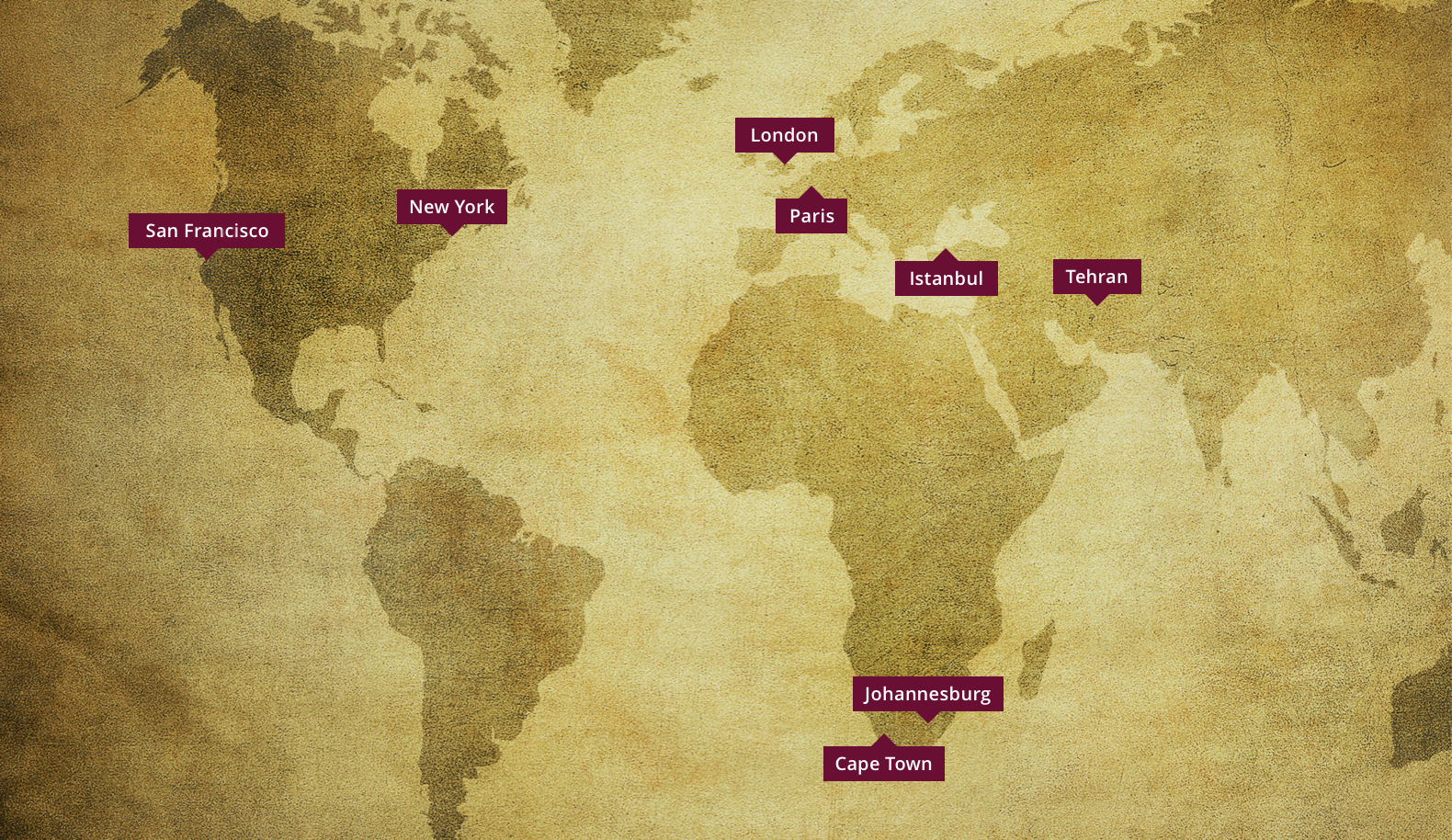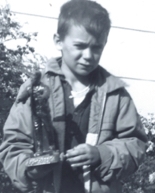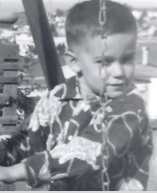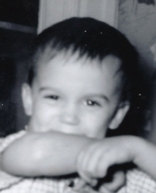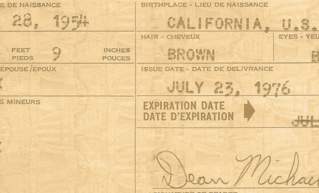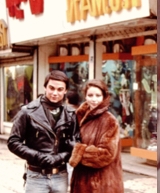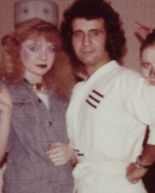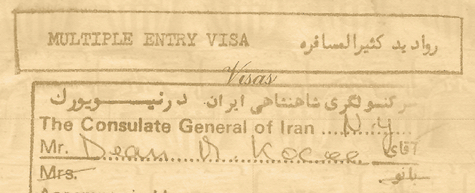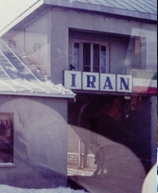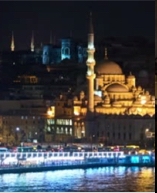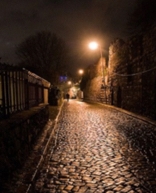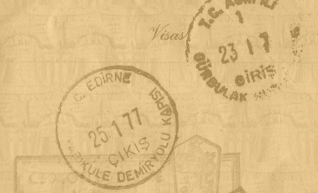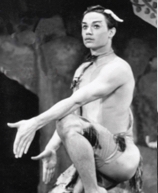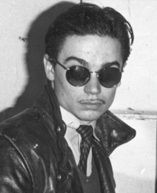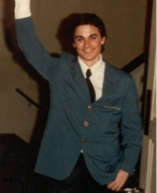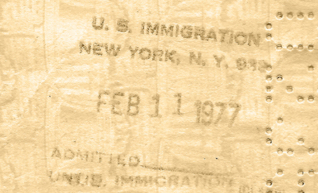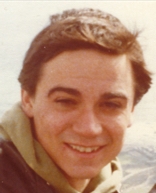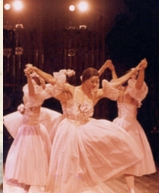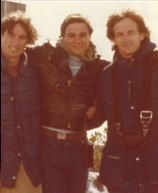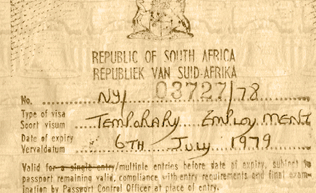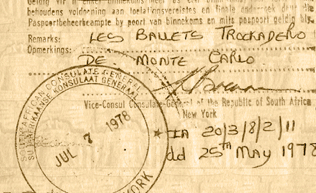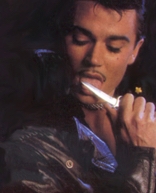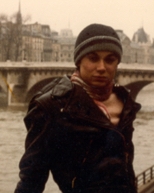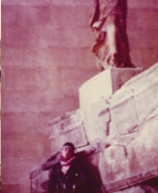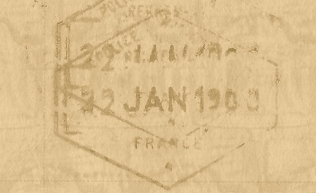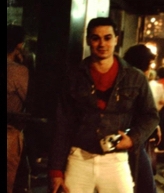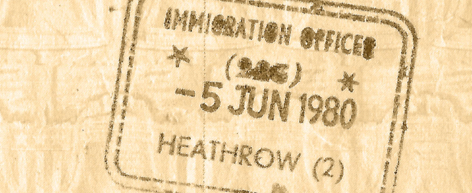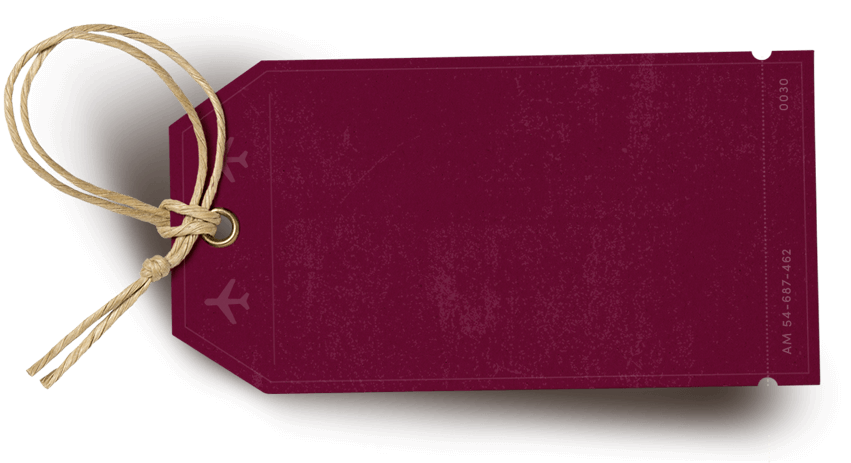
passport To Adventure
Select Your Destination
San Francisco, 1959
“Children’s hearts are delicate things, fragile and easily broken, but in the right hands they are also mended. I was still safe to hold out my hand and certain that one person would take it and protect me.
One of my earliest memories is of a picnic in the back yard when I was too young to go to school and not feeling very special.
My mother baked a three-layer cake and made each layer a different color. She made some sandwiches and took me to the very back of the yard and we had our own picnic on a blanket.
My grandfather watched us from his window above and told her later, “It was just blame foolishness,” …but it wasn’t.
She had a knack for fixing hurt parts inside with little more than a glance and could make you feel secure when you really had nothing at all.
I learned to avert my eyes, to disappear, one cold morning in San Francisco, a long time ago ...and Dream.
Mama' was my champion and savior and later I was hers. Neither would have survived our brutal pasts, or fragmented lives without the other.
I miss her, more and more, each day. She could lay her hand on mine and dissolve my confusion. - No one will ever believe in me unconditionally again.
No one else will ever understand that the story of our lives, is simply the truth.
From Chapter 1 of HomoAmerican, “San Francisco”
Back to Top
Tehran, Iran, 1976
“Thursday morning arrived on the heels of a sleepless night. Judith bravely managed to keep our dark secret from Helen and the others to the bitter end.
We three wore brave faces as they prepared to set out for class together, even though we knew that we might never see each other again. In the final rush of hushed goodbyes, Gerard gave her a bracelet and I placed a gold ring on her finger to remember us by.
"Go on ahead," I heard her call out to the others at the foot of the stairs, "I forgot my warmers," and in the next moment she was in the doorway one last time.
She threw her arms around us and kissed us on the cheek and cried more than I imagined that she would and I realized, in that moment, that this is the first woman friend I've ever known, who has truly been a friend. She wiped her eyes, wished us luck, smiled one final sad sweet smile and then disappeared down the stairs once more.
We all have our identity papers and it's time to go. My mind is spinning like a roulette wheel and I've placed my bet. The tiny marble spirals backwards and I feel the same numbing exhilaration that I always feel when I set out on a new adventure, on the precipice of a void, confident, fearless and blind.
The snow-covered terrain is quite beautiful and yet there is instability in the air, in these people. I can't help but feel that this whole world is disappearing as we leave it behind.”
From Chapter 19 of HomoAmerican, “Escape
Back to Top
Istanbul, 1977
“Then at the end of the second day, just at sunset, we could see it in the distance — Istanbul …with its countless mosques and minarets …a floating mirage above the desert landscape. The fading sun reflected in thousands of panes of glass and then sank out of sight taking the city with it.
It was still a long while before we arrived, before the dark buildings closed in around us and the streets narrowed and swarmed with crowds of people. By the time we crossed the Bosporus, dividing Istanbul and Asia from Europe, it was very dark. When we arrived at the bus station, I knew our train had gone.
In the confusion it was hard to collect our things. Gerard was busy pulling our duffle bag from the baggage compartment and I held Sammy and tried to get my bearings. Steffon clutched his belongings and looked bewildered.
I noticed the bus driver, as he looked us over with concern and came up to help. “Don’t stay here,” he said. “Someone …take your money.” He explained as best he could the fastest way to the train station, then patted my shoulder and disappeared into the crowd.
It wasn’t supposed to be dark when we arrived, but the time had somehow gotten away; it has been more that two days after all. Our legs are still shaky and unsteady from sitting too long and there will be no Orient Express to catch. Staying in a hotel is out of the question since we have very little money. The only solution is to make our way to the train station and see if there is another train.
The city is alive, everywhere, even in the darkness. The streets are carved out of stone and lit with strings of lights. There is music in the alleyways and spilling out from lighted doorways. Silhouettes, in darkened corners, visible only by the burning ends of cigarettes, watch as we pass by.”
From Chapter 19 of HomoAmerican, “Escape”
Back to Top
New York, 1978
“Back in the real world, the dichotomy of my life is vividly reflected in my art.
I’m doing a production of Cyclops, at the Theatre of the Ridiculous in the West Village. I’m playing a Satyr, part of a Greek Chorus. Someone famous designed the costumes, but I paid no attention to the details of his legend, being so occupied with my own.
I wear a loincloth, concealing a huge phallus and horns are woven into my hair, which look quite natural. The publicity shots are getting a lot of play, in the local press. Euripides would be proud.
Simultaneously, Keith and I are performing to packed houses in the East Village. We call ourselves “The Surrogates.” Keith, dressed in black, wears a pair of television-screen-shaped sunglasses with antennae and I’m his ballet-dancing dog, wearing nothing but a dog collar, black dance belt and mirrored sunglasses.
The show is called “Voideville, The Last Show on Earth,” a new age vaudeville extravaganza.”
We’re just one of more than twenty acts of artistic insurrection, a dazzling display of heterogeneous splendor. It’s a mad and wonderful spectacular, in which we share the stage nightly with heretofore unnoticed, notable legends such as “Ruby and the Rednecks” and “Dildo the Clown.”
Every review, no matter how brief, has mentioned us, but not even
the all-seeing Dildo, understands us. They watch, with silent reverence from the wings, as each night we steep ourselves in East Village avant-garde!!!!”
From Chapter 25 of HomoAmerican, “The Voidville Days”
Back to Top
Cape Town, South Africa, 1978
“We dressed in our best and traveled another hour before we reached the main gates of the house, then we spiraled up a steep road through groves of trees and open lawns, past carriage houses and horses, before we came to a formal garden overlooking the sea.
The house is monumental and spectacular; it is literally carved into the side of a cliff, the main house seems to grow out of the rock on the precipice, high above the ocean and then spills over the edge, suspended four levels down, a stone and glass alchemy of design.
There are touches of extravagance everywhere; Russian sable on the master bed, priceless antiques, works of art, paintings and sculpture in glorious rooms and secret gardens connected by ever descending spiral staircases. On the lowest level, a magnificent landscaped terrace floats over the dark swells and crashing waves somewhere below …and yet, all of these marvels pale in comparison …in the light of the glittering yellow diamond ring worn by our hostess.
Gloved servants walk backward through invisible doorways and take no notice of our conversations. We tempted the genteel bounds of hospitality as only ignorant people can on a visit to a culture they don’t understand. We ask questions that only fools would venture in such company.
“But you see, our blacks aren’t like yours,” our hostess chides in her charming accent. “They wouldn’t know how to run this country,” then touches her hand to her hair, to make sure it’s in place, as her diamond catches fire in the light of the Baccarat chandelier over the table.
Our host gives a short huff and then chimes in, “Our ancestors built all of this and they would run it all into the ground, if we left them to it.”
With those words of wisdom, our fears were put to rest and our minds at ease. The company is courteous and the dinner is divine and I must admit, we are much more concerned about which fork to use, than the plight of the oppressed.”
From Chapter 23 of HomoAmerican, “Africa”
Back to Top
Johannesburg, South Africa, 1978
“Vera, Inez and I share a dressing room, a fortress, a sanctuary of calm in the chaos of catty backstage chatter. The likes of little Ida Nevasayneva and her swishy crew had better stay clear of us, or risk getting their pigtails in a bind.
I always wear my leather jacket over my swan tutu in the wings and although my hair is pulled back and rather severe, my makeup is light and feminine. Peg knows how to be a lady.
It came as no surprise to find, “Dyke” mockingly scrawled on our dressing room door after a performance, so we left it there and owned it. As gay men what better compliment, than for our alter egos to be taken for rough and tumble lesbians.
Backstage on our last night in Johannesburg, we were getting ready for another full house and our notorious “Dyke Bar” was in full swing. Betteanne came in, hung in the doorway and watched me while I put on my makeup.
“You take yourself so seriously,” she sniped, “They don’t care what you look like, as long as it’s funny.”
I contacted her eyes in the mirror. “I can’t help it, if I’m prettier than you are, Betteanne,” I answered and continued painting my lips.
“You really are delusional!” she scoffed, shaking her head and that’s where we left it, but she should be aware that I cut my teeth on worthier opponents.”
From Chapter 23 of HomoAmerican, “Africa”
Back to Top
Paris, 1980
“My façade is beginning to crumble. The staring fools are beginning to make me angry and anger and nerves might look like guilt. The shift is changing again, and some familiar faces are coming around to see if their big catch is still in his cage.
I was taken upstairs again and was told that I was identified in another line-up but I don’t know what they said about me.
This time they were on the other side of a mirrored glass and as I stood there looking at my fearful reflection with my accusers well hidden, it occurred to me that it really doesn’t matter if I’m innocent or not; I can never prove my innocence. I have to rely on them believing me.
My actions were all wrong; I was in the wrong place at the right time. No alibi and what character witnesses do I have? Declared homosexuals, in the eyes of these fools we’re the same as murderers. I can hear them playing my songs at the trial, The “Dead Are Making Love” or “Gina Genacide” and me on all my posters and album covers licking and fondling that knife.
The tall queen looks so confident; I’m sure she and her cohort are going to be released and leave me here alone. I think I want the Death Penalty; after only twenty-two hours, shackled wrists to ankles, in this freezing cell, I’m a wreck, I’m shaking uncontrollably, there’s no way I can take life in prison.
It’s clear now, I’m going to die innocently; I only hope that my music will sell because of it. I feel like screaming, but they’ll gag me or put me in a straightjacket. Every eye seems to accuse me. Maybe Bernard broke everything in the apartment and has killed himself already and they’ll get me for that too. I really am going crazy. I don’t like to be alone or under pressure or cold; it’s unbearable. Justice really doesn’t exist. They need a murderer and I can be pressed into their mold.
I’ll be that crazy gay murderer…who afterwards …went home and cooked pork chops that people will tell about. It seems so like other crazy murderers that people tell about. The Pork Chop Murderer, they’ll call me.
The clock it seems has stopped and I’m losing touch with my resolve. My hands are beginning to shake badly. We’re all a lot more fragile than we think. In another day I’ll be ready to sell flowers at the airport or take up arms with Tanya and the S.L.A. Oh god …the officers are coming back! … it’s going to start all over again!”
From Chapter 33 of HomoAmerican, “Murder”
Back to Top
London, 1980
“Music of the street, squats, wankers and bankers. 4 scrawny Skins attack a crowd of 50 gays, who shrink away in fear.
Then on to a Posh party in Richmond, which ends with our hostess, on acid, being thrown through the windshield of her vintage Rolls.
I saw our hostess only once; as she floated through the crowd, she passed out acid in sugar cubes, on a silver tray. - She wore sheer silk Palazzo pants a spun gold top that defied gravity, her eyes electric; until it all exploded.
Petrol bottles smashed on the house and smoke poured in through the windows. “Grab sumfin' “ Val said, “defend our turf.”
I said: “You people are at war here & I'm not at war with anyone.” Val shouted back as he wrapped a gun belt around his hand and ran into the Frey. "But u are maite ...whever u know it or not."
